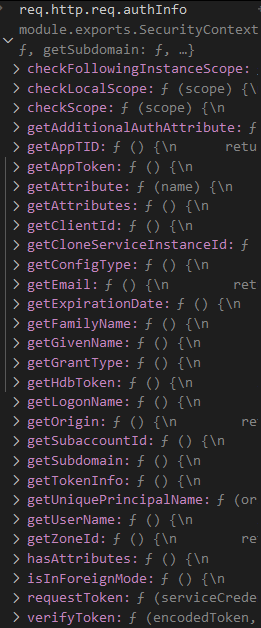For Jobs running longer than 15 seconds, you have to manually inform the Job Scheduler if your operation succeeded or not. Else, your job will only stay in status COMPLETED/UNKNOWN due to the timeout.

Informing the Job Scheduler about your succeeded operation can be done vie REST API Endpoint Update Job Run Log. You can read more about Long-Running (Async) Jobs here. I therefore wrote a function named updateJobStatus, which I call at the end of every long-running endpoint. It checks if the endpoint is called manually or via Job Scheduler service and updates the Job Run Log using the @sap/jobs-client if required.
const cds = require('@sap/cds')
const LOG = cds.log('JobService')
const xsenv = require("@sap/xsenv")
const JobSchedulerClient = require("@sap/jobs-client")
async function fetchAccessToken(url, creds) {
const response = await fetch(`${url}/oauth/token`, {
method: 'POST',
body: 'grant_type=client_credentials&client_id=' + creds.uaa.clientid + '&client_secret=' + creds.uaa.clientsecret,
headers: {
'Content-Type': 'application/x-www-form-urlencoded'
}
})
return await response.json()
}
async function getJobscheduler(req) {
xsenv.loadEnv()
const services = xsenv.getServices({
jobscheduler: { tags: "jobscheduler" }
})
if (!services.jobscheduler) req.reject("no jobscheduler service instance found")
const subdomain = (process.env.NODE_ENV === 'production') ? req.http.req.authInfo.getSubdomain() : 'customer1' // workaround for local testing
const domain = `https://${subdomain}.${services.jobscheduler.uaa.uaadomain}`
const token = await fetchAccessToken(domain, services.jobscheduler)
const options = {
baseURL: services.jobscheduler.url,
token: token.access_token
}
return new JobSchedulerClient.Scheduler(options)
}
async function updateJobStatus(req) {
const jobId = req.headers['x-sap-job-id']
const scheduleId = req.headers['x-sap-job-schedule-id']
const runId = req.headers['x-sap-job-run-id']
if (!jobId || !scheduleId || !runId) return
LOG.info('Endpoint is called via Job Scheduler')
const scheduler = await getJobscheduler(req)
const payload = {
jobId: jobId,
scheduleId: scheduleId,
runId: runId,
data: { success: true, message: 'The endpoint has successfully executed the long-running job' }
}
scheduler.updateJobRunLog(payload, function (err, result) {
if (err) return LOG.error('Error updating run log: %s', err)
//Run log updated successfully
LOG.info('Run log updated successfully')
})
}
module.exports = {
updateJobStatus
}

